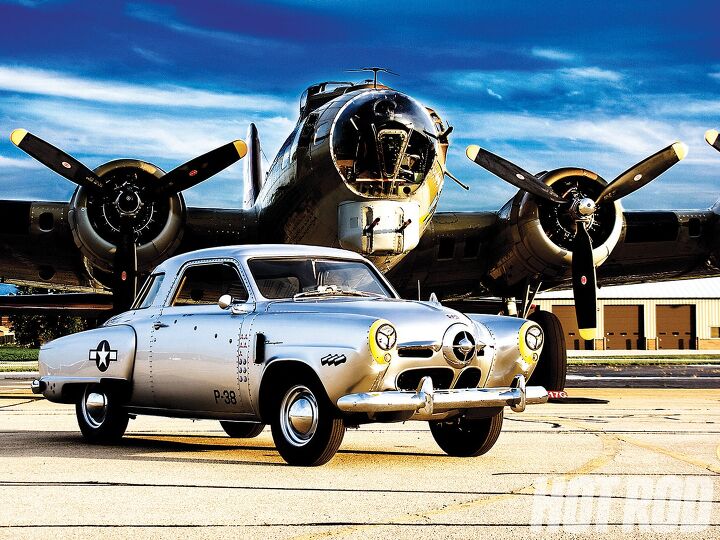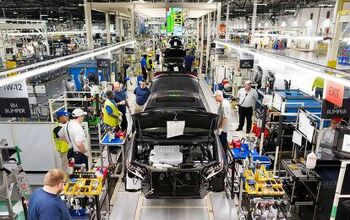The Mortal Sins Of The Auto Business: New Car Brands

Automortal Sins is an infrequent series about the true sins in the auto business. It won’t be the sins which some bloggers regard huge. Building the wrong car once in a while is a minor iniquity compared to the huge, most egregious, and definitely mortal sins committed by automakers, without the smallest amount of remorse.
Creating a new car brand is not a sin often committed anymore in the industry. People learn. Outsiders, from Fisker to Coda and Tesla however are still found munching from the forbidden tree. Some already roast in hell for their sins, others will. Creating a new car brand is one of the most mortal sins in the business. You probably won’t believe me, but I will bring a prominent witness.
There are few things in the world of cars that take as long and as much money as successfully establishing a car brand. It does not take a lot to be unsuccessful. I am not talking about “branding,” that little understood but nonetheless much debated black art. I am talking about the suicide mission of creating a new car brand.
The annals of automotive history are littered with dead or invalid brands. The dead ones are mostly forgotten. Invalid brands hobble along, carrying the smell of impending death. Unless you are blessed with being a storied carmaker, don’t try to become one.
“What most other brands have and Lexus lacks, is a story, a narrative, history.”
This did not come from a lone scribe. It was said yesterday by Toyota’s CEO Akio Toyoda, who also made himself chief of the Lexus Division. Asked why, Toyoda said:
“I happened to be born with the company name. I may be able to make a contribution to our effort to build a brand. The lack of history may be the weakest point of Lexus. Building a brand is a time consuming endeavor. For Lexus to be perceived as a true brand will take a lot of time, starting here.”
These are frank words from the chief of a brand that already can look back at a quarter century of a successful past. What Toyoda tries is to transfer his grandfather’s and father’s DNA into a brand that lacks an important ingredient for a brand’s success: History. If Toyoda is troubled by a lack of history on the part of Lexus, imagine the trouble you are in if you have no history at all.
Two years ago, at the annual Chinese auto industry confab in Chengdu, executives of Chinese car companies lamented that they “compete against brands that sometimes are over 100 years old.” However, this did not keep them from stamping out brands as if they are steel pots. Then came the rude awakening. A year later, at the same conference, the CEO of Dongfeng, one of China’s largest automakers, said that the brand binge was misguided, “irrational, incompetent, and immature.” He was right.
A storied history alone does not guarantee success, but lack of lineage more or less assures a car brand’s premature passing, or worse, it can lead to the brand getting bogged down and nowhere after initial successes.
A textbook example of DNA deficiency are the luxury brands created by Japanese automakers as an answer to the allegedly voluntary import restraints. They initially thrived, ironically nurtured by regulations that were supposed to protect the U.S. auto industry. Lexus succeeded faster than the rest, because the brand did not simply say that the customer is king, Lexus actually did treat its customers as royalty, and sold its cars at a discount to other premium brands that exuded arrogance.
Outside of the artificial climate, the Japanese premium brands failed to blossom. I worked for a large European OEM when the arrival of Lexus on European shores was awaited with greater trepidation than the Americans at the beaches of Normandy. However, the onslaught fizzled. Some twenty years later, Lexus is yet to break out of its tiny European beachhead that resembles Dunkirk more than Omaha Beach. Lexus managed to sell 24,600 cars in all of 2012 in all of Europe, for a market share of 0.2 percent.
It is quite telling that all three Japanese premium brands are of little, or no consequence in Japan, in the land of their shallow roots. Lexus sold 43,657 units at home in Japan last year, similar to what Mercedes (41,911) and BMW (41,102) sold in an allegedly closed car market. Honda and Nissan did not even try to bring Acura and Infiniti home. It is quite telling that Dacia, a brand that harkens back to the bad old days of a Romanian dictator called Nicolae Ceaușescu, but at least it harkens, can be more successful than a Tata Nano. Nissan wisely dusts off its Datsun brand for its upcoming entry into the low cost market. Sure, there are many other factors that lead to victory or defeat, but if your history books are empty, your ledgers will most likely stay the same.
I was there during Audi resuscitation in the 70s, and I was peripherally involved in the CPR. Executives of Japanese OEMs asked me a few times what “the secret of Audi” was. Each time, I answered, truthfully, that there is no secret. They looked at me as if they did not believe me, but now that their boss said it, maybe they will.
It took half a century from Audi’s takeover by Volkswagen in the mid 60s to where Audi is today, and most of its resurgence is recent. Often forgotten: Audi has a rich dose of that ingredient called history. Audi is Latin for Horch, another storied brand that went bust. Gottlieb Daimler’s four wheeler was a slider, built by NSU, a company that later merged into Audi. Daimler provided his engine. Most of this may not be readily present in the minds of most customers, but if you ask, it’s there.
As Messrs. Studebaker, Packard, Nash, LaSalle & Co will concede, history is no guarantor of longevity. Victor Muller will probably deny that owning Saab doesn’t help much if you run out of money, time, and luck. Should one insist on creating a car brand out of nothing, it will take untold amounts of money, time, and luck to be successful.
What Toyoda said yesterday should be nailed to the wall or, if necessary, to the foreheads of all who think of creating a new car brand, or of buying stocks in one. If you want my advice, I can quickly come up with more entertaining ways to spend all that time and money.

Bertel Schmitt comes back to journalism after taking a 35 year break in advertising and marketing. He ran and owned advertising agencies in Duesseldorf, Germany, and New York City. Volkswagen A.G. was Bertel's most important corporate account. Schmitt's advertising and marketing career touched many corners of the industry with a special focus on automotive products and services. Since 2004, he lives in Japan and China with his wife <a href="http://www.tomokoandbertel.com"> Tomoko </a>. Bertel Schmitt is a founding board member of the <a href="http://www.offshoresuperseries.com"> Offshore Super Series </a>, an American offshore powerboat racing organization. He is co-owner of the racing team Typhoon.
More by Bertel Schmitt
Latest Car Reviews
Read moreLatest Product Reviews
Read moreRecent Comments
- MrIcky no
- Keith_93 I've rented both in the past few months. The RAV4 was OK, but the CX5 is wayyyy more civilized. Mazda really impressed me, impressive car on the highway. Simply a well thought out and pleasant drive.
- AZFelix "I must not fear. Fear is the mind killer..."I will adorn the many surfaces of my car with 'do not enter' and 'stop' signs."Where the fear has gone there will be nothing. Only I will remain."
- Ajla Ajla, the head of the "ajla is cool" awareness organization, believes that ajla is cool.
- Ajla I don't have interest in owning an autonomous car. I certainly don't think I'd ever "embrace it" because I like driving my car. Would I be "scared" taking a ride in an AV in 2024? Probably, although not hysterical about it. Statistically the majority of accidents, especially fatal accidents, are caused by reckless or impaired driving. I don't do those things and the AV technology of 2024 won't really save you from other people being insane on the road.









































Comments
Join the conversation
Lexus has fallen into same trap as Acura, a 'nicer Toyota'. Mainly now known for the RX SUV, popular with parents at school drop offs, fast food drive throughs, and outlet malls. And, since 10 year old RX's look like new ones, they are all too common site. Working class buyers now drive these once 'high end' cars, and have cost Lexus any cache' on Rodeo Drive or South Beach. The Audi commercial with all the biege RX's lined up, and tag 'identity theft is a crime' were spot on. At least in Cadillac's hey day, they would update the styles. Not 'cookie cutter' biege bland mobiles for "Jen Anniston wanna-bes".
While I agree that the lack of history is a huge hurdle for any brand to overcome, I am more interested in the psychology of why it is a hurdle in the first place, because when that is well understood, then a plan can be crafted to overcome it. While there may not be any 'secrets' to success, like with Audi, there certainly are more effective and less effective actions. Some people are just good at doing certain things, and it is because they do those things in good ways. They may not even know what they do works, but they keep doing it. If it not generally known (and if others don't have similar success, then it's reasonable to assume that they aren't), then those practices can rightly be called "secrets." Lexus has been around long enough that many people don't remember a time without it. That's probably enough history. What I think is more critical is the reputation they built from the get-go. When people think "Lexus," they don't think ancient history--they think what are they known for. This is where they differ from Infiniti, IMO. I remember when both brands were launched, and Infiniti's commercials were so dumb, snotty, and out-of-touch that we have forever since called the brand "Absurditi." Tesla doesn't have a history, but boy do they have a story. I expect that will pay significant dividends for them, and I actually expect them to be one of the few successful new brands.